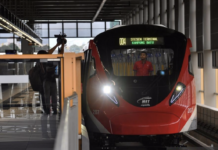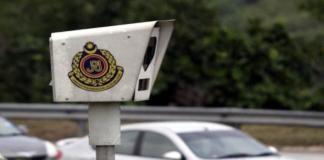KUALA LUMPUR, Oct 19 — The import licence or approved permit (AP) system for motor vehicles must be maintaned so that priority is given to the local industry in ensuring an inclusive automotive industry development in line with the aspirations of the National Automotive Policy 2020.
It will also curb the dumping of completely built-up (CBU) imports including electric vehicles (EV) which do not comply with the safety standards for road users, said Minister of Investment, Trade and Industry Tengku Datuk Seri Zafrul Abdul Aziz.
Hence, he said the move to issue AP on CBU import is still relevant and must be maintained due to additional justifications, he said during the Ministers’ Question Time session in the Dewan Rakyat today.
The AP system is a mechanism for collating data and information to regulate and improve the current policies and guidelines for the development of the automotive sector in Malaysia.
It will also ensure that imported new or used CBU always comply with the requirements set by the Ministry of Investment, Trade and Industry (Miti).
He was responding to a question from Lim Lip Eng (DAP-Kepong) regarding the measures taken by the government so as not to abolish the issuance of import AP and tax exemptions such as excise duty and import tax on all types of EV including commercial vehicles and motorcycles.
Tengku Zafrul expained that, as announced in Budget 2023, the excise duty and import tax exemptions provided by the government applies to all types of EVs including commercial vehicles and motorcycles.
The incentive for EVs imported in the form of CBUs is applicable until 2025 and for locally assembled completely knocked down (CKD) units, it is applicable until 2027. Besides that, full sales tax exemption is given for CKD EVs until 2027.
The number of EVs registered in Malaysia from 2011 till September 2023 specifically for battery electric vehicles (BEV) including all types of commercial vehicles and motorcycles reached 12,000 units.
EVs registered in 2022 totalled 3,000 units and 7,500 units up to September 2023 compared with an average of 300 units for each year previously.



















